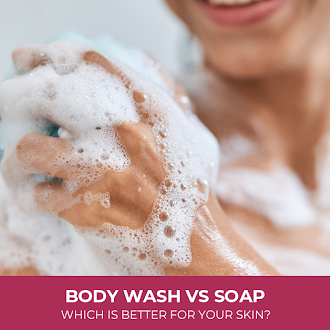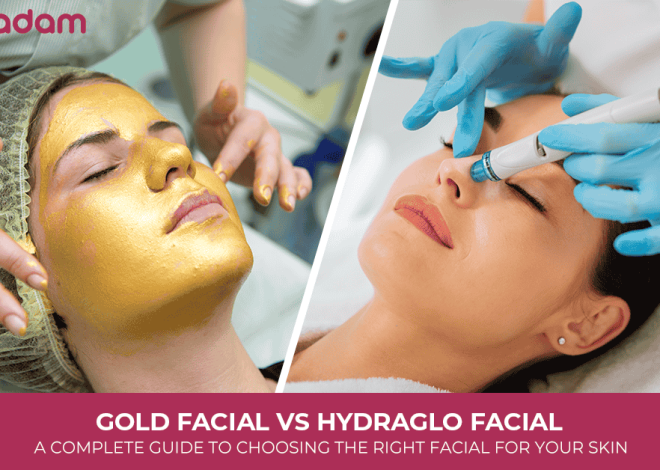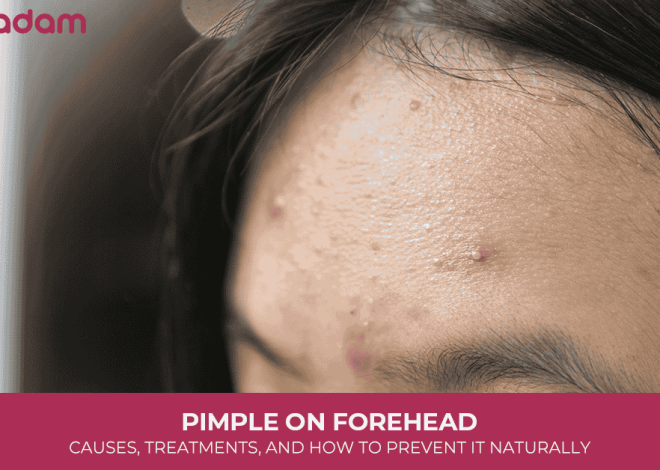
Body Wash vs Soap: Which Is Better for Your Skin?
When it comes to keeping your skin clean and healthy, one of the most common debates is body wash vs soap. Some people swear by the simplicity of a bar of soap, while others can’t imagine showering without a bottle of body wash. But when it comes down to it, soap or body wash, which is better for your skin?
The answer isn’t always one-size-fits-all. It depends on your skin type, personal preferences, and lifestyle. In this guide, we’ll break down the difference between soap and body wash, explore the pros and cons of each, and help you figure out what’s best for you. Let’s dive in!
Table of Contents
What’s the Difference Between Soap and Body Wash?

At first glance, soap and body wash may seem like the same thing—they both clean your skin, after all. But there are a few important distinctions:
- Bar Soap: Traditionally made from fats or oils combined with an alkali, bar soap is solid and lathers when mixed with water. It’s often more alkaline, which means it can sometimes strip the skin of natural oils if used frequently. However, modern bar soaps now come with moisturizing ingredients to counter this effect.
- Body Wash: Body wash is a liquid cleanser, typically packaged in a bottle or pump. It often contains added moisturizers, essential oils, and fragrances. Body wash tends to be less drying and more hydrating than traditional soap, making it a favorite for people with sensitive or dry skin.
The difference between body wash and soap lies not just in form, but also in formulation. While bar soap is often simpler, body wash can be enriched with skincare ingredients like shea butter, aloe vera, or hyaluronic acid.
Soap or Body Wash: Pros and Cons
Pros of Soap
- Eco-friendly options – Bar soaps usually come in minimal or recyclable packaging, making them more sustainable.
- Long-lasting – A single bar of soap can last weeks if kept dry between uses.
- Budget-friendly – Generally, bar soaps are less expensive than body wash.
- Effective cleansing – Soap does a great job of removing dirt and oil.
Cons of Soap
- Can be drying for sensitive or dry skin.
- Some formulas may leave a residue or “squeaky clean” feeling.
- Shared bars may harbor bacteria if not stored properly.
Pros of Body Wash
- Hydrating formulas – Often contains moisturizing agents, perfect for dry or sensitive skin.
- Variety of options – Available in countless scents, textures, and specialized formulas (e.g., exfoliating, soothing, acne-fighting).
- Hygienic – Comes in bottles, so there’s less chance of spreading bacteria compared to shared bar soap.
- Convenience – Easy to use with loofahs, sponges, or directly by hand.
Cons of Body Wash
- Less eco-friendly due to plastic packaging.
- Can be more expensive than bar soap.
- Some body washes contain synthetic fragrances or sulfates that may irritate skin.
More Information For You: PRP Treatment for Face
Soap or Body Wash: Which Is Better?
So, soap or body wash, which is better? The truth is, both have their place depending on your needs:
- If you have dry or sensitive skin, body wash may be the better choice since it’s formulated with hydrating ingredients.
- If you want something eco-friendly, affordable, and long-lasting, bar soap could be a better option.
- For oily or acne-prone skin, traditional soap can help cut through excess oil, but a gentle body wash with salicylic acid might be more effective and less harsh.
- For sensitive skin conditions like eczema or psoriasis, dermatologists often recommend fragrance-free body washes or mild, moisturizing soaps.
In the debate of is body wash better than soap, the answer really comes down to personal preference and skin type. Neither option is universally “better,” but one might be a better fit for you.
How to Choose the Right Cleanser for Your Skin Type

- Dry Skin: Choose a creamy, moisturizing body wash with ingredients like shea butter, glycerin, or aloe vera. Avoid harsh bar soaps unless they’re specifically made for dry skin.
- Oily Skin: A mild bar soap or gel-based body wash with exfoliating properties (like salicylic acid or tea tree oil) can help reduce oil buildup.
- Sensitive Skin: Go for fragrance-free and hypoallergenic options. Look for labels like “gentle,” “for sensitive skin,” or “dermatologist-tested.”
- Normal/Combination Skin: You can choose either body wash or soap based on your personal preference. A balance of cleansing and light moisturizing works best.
The Role of Ingredients
When comparing soap vs body wash, ingredients matter as much as the format:
- Moisturizers (shea butter, glycerin, oils): Best for preventing dryness.
- Exfoliants (salicylic acid, glycolic acid, beads, or natural scrubs): Help remove dead skin cells.
- Fragrances & dyes: Can be irritating for sensitive skin—look for fragrance-free versions.
- Antibacterial agents: Useful for acne-prone skin, but not necessary for daily use.
Environmental Impact: Soap vs Body Wash
Another angle in the body wash or soap which is better debate is sustainability. Bar soaps generally come in recyclable cardboard packaging and have a lower carbon footprint. In contrast, body washes usually come in plastic bottles, which can contribute to plastic waste unless properly recycled.
If eco-friendliness is a priority for you, choosing natural bar soap might be the way to go. However, some brands now offer refill pouches or sustainable packaging for body wash, bridging the gap.
Cost Comparison: Body Wash vs Soap
- Bar Soap: Affordable, usually costs less per use, and lasts longer if kept dry.
- Body Wash: More expensive due to packaging and added ingredients, and it tends to be used up faster.
If you’re budget-conscious, soap is often the more practical choice. But if you’re willing to invest in extra skincare benefits, body wash could be worth it.
Personal Preference Matters
At the end of the day, choosing between soap or body wash isn’t just about science—it’s also about your personal preference. Some people love the classic feel and nostalgia of a bar soap, while others enjoy the luxurious lather and fragrances of body wash.
The good news? You don’t have to choose one forever. Many people use both, switching between them depending on the season or their skin’s needs.
Final Verdict: Which Is Better, Body Wash or Soap?
So, which is better, body wash or soap? The answer is: it depends.
- For dry or sensitive skin → Body wash usually wins because of its hydrating ingredients.
- For oily or acne-prone skin → Bar soap or medicated body wash can be more effective.
- For eco-conscious individuals → Bar soap is the more sustainable option.
- For those who enjoy scents and luxury textures → Body wash offers more variety.
Ultimately, the choice between soap or body wash comes down to your lifestyle, skin type, and preferences. The best option is the one that keeps your skin clean, healthy, and comfortable.
FAQs
1. What is the main difference between soap and body wash?
The main difference is that bar soap is solid and often more alkaline, while body wash is a liquid that usually contains moisturizers and fragrances. Soap tends to cleanse more deeply, whereas body wash is gentler and hydrating.
2. Is body wash better than soap for sensitive skin?
Yes, in most cases. Body washes often include soothing and moisturizing ingredients like aloe vera or shea butter, which help prevent irritation. Traditional bar soaps can be drying, though there are mild and fragrance-free options suitable for sensitive skin.
3. Which is better for dry skin: soap or body wash?
For dry skin, body wash is usually better because it contains hydrating agents. Bar soaps, especially older formulas, can strip the skin of natural oils, although moisturizing soaps are available.
4. Can bar soap be more hygienic than body wash?
Not necessarily. While bar soap can collect bacteria if left wet, studies show that bacteria on soap are unlikely to transfer to your skin in harmful amounts. Body wash in a sealed bottle is generally more hygienic for shared use.
5. Does body wash last longer than soap?
Typically, bar soap lasts longer than body wash, especially if stored properly in a dry soap dish. Body wash often runs out faster since people tend to use more per shower.
6. Which is more eco-friendly: body wash or soap?
Bar soap is generally more eco-friendly because it comes in minimal or biodegradable packaging. Body wash often comes in plastic bottles, though some brands now offer refillable or recyclable options.
7. Can I use soap or body wash on my face?
Most dermatologists recommend using a cleanser specifically formulated for the face, as both bar soap and body wash may be too harsh for delicate facial skin. However, gentle, fragrance-free formulas can sometimes be used on the face.
8. Which is better for oily skin: body wash or soap?
Bar soap can help remove excess oil effectively, but it may also dry out your skin if it’s too harsh. A gel-based body wash with ingredients like salicylic acid may be a gentler yet effective option for oily skin.
9. Does body wash work better than soap for body acne?
Yes, body wash with exfoliating or acne-fighting ingredients (like benzoyl peroxide or salicylic acid) can help treat and prevent breakouts. Bar soaps without added moisturizers may strip oils but can sometimes cause irritation.
10. So, body wash or soap, which is better for me?
It depends on your needs. If you prefer eco-friendly and long-lasting options, soap is great. If hydration, fragrance, and gentleness are important, body wash may be the better choice. You might even use both depending on your skin’s condition and the season.



